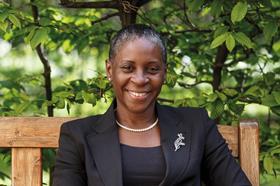Responding to climate change is going to be an increasing feature of all our lives and law firms will be expected to play their part.

The World Economic Forum began 2022 by listing climate action failure, extreme weather events and biodiversity loss and ecosystem collapse as the top three of 10 global risks ranked by severity over the next 10 years in its Global Risks Report published on 11 January.
The Law Society, like so many other organisations, is grappling with these complex issues.
We want members from small and medium sized firms to help shape our work on climate change so it is relevant to assist them in addressing the challenge.
Climate change presents a variety of far-reaching risks across society and the economy.
Climate risks are beginning to be dealt with from a regulatory perspective to build climate resilience into markets. New regulations and guidance are constantly being developed. For example, by the end of the decade all non-domestic rented commercial properties must have an EPC rating of B and many residential and non-residential buildings will have minimum requirements on electric vehicle charging points.
For solicitors, the implications of climate risks to them and their clients are immense, particularly as they will often be approached as problem solvers and may be asked to advise on or consider:
- Whether the property a client is seeking to acquire is at risk from extreme weather such as flooding and whether it will be an acceptable security to lenders in the future?
- Where clients are looking to purchase a business, what are the relevant regulatory and reputational risks and what might depress the future value of the target business?
- The strength of ESG credentials claimed by large companies as part of supply chain evaluations.
- The strength of their firm’s own net zero targets as part of large companies or bank supply chains.
In 2021, the Law Society published a Climate Change Resolution to inform our own policy on climate action and to urge solicitors to take the lead.
Our resolution urges solicitors to “engage in climate conscious legal practice” by mainstreaming climate change throughout their daily practice.
This includes:
- Approaching “any matter arising in the course of legal practice with regard to the likely impact of that matter upon the climate crisis”; and
- Providing “competent advice to their clients on (i) how they can achieve their objectives in ways which mitigate the effects of the climate crisis; and (ii) the potential legal risks and liabilities that may arise from action or inaction that negatively contributes to the climate crisis”.
We also encourage law firms to adopt “practical measures to reduce the environmental impact of their business and policies which mitigate their contribution to the climate crisis through the provision of legal services”.
We are looking for members who are interested in being contacted about opportunities to shape the Law Society’s climate work to help our small/medium sized firm members including participation in a steering group.
Express your interest here to:
- be contacted about opportunities to consult on the Law Society's climate change work
- join a steering group for developing a legal sector net zero protocol
- volunteer your firm to take part in a net zero pilot
I. Stephanie Boyce is president of the Law Society of England and Wales
This article is now closed for comment.































6 Readers' comments